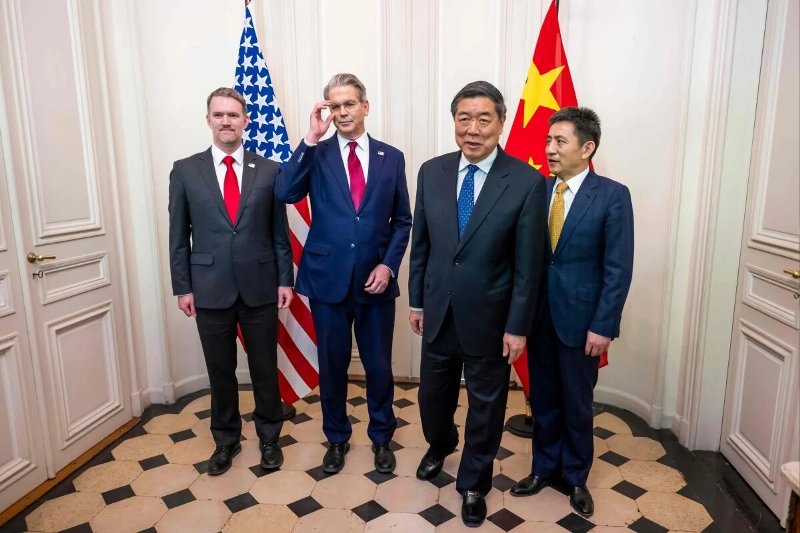Key Points:
- China and the U.S. confirmed a trade deal on June 26, 2025, easing rare earth export controls and U.S. technology restrictions, according to China’s Ministry of Commerce.
- The agreement builds on the Geneva consensus, finalized in London by U.S. Treasury Secretary Scott Bessent and Chinese Vice Premier He Lifeng.
- The deal aims to stabilize tense U.S.-China trade relations, following a 90-day tariff suspension agreed in Geneva.

On June 27, 2025, China’s Ministry of Commerce confirmed a trade framework with the U.S., focusing on rare earth exports and easing technology restrictions. The agreement, an extension of the Geneva Consensus, allows China to review export applications for controlled items. At the same time, the U.S. will lift specific restrictive measures against Beijing, a ministry spokesperson said.
Details on specific checks beyond magnets were not disclosed, raising questions about the scope of the deal. The announcement followed high-level talks in London, led by U.S. Treasury Secretary Janet Yellen and Chinese Vice Premier He Lifeng, which helped stabilize a strained trade relationship.
Trump Made Deal Announcement
President Donald Trump announced the deal on June 26, 2025, at a White House event, stating, “We just signed with China yesterday.” A White House official clarified it as an “additional understanding” to implement the Geneva agreement, reached after mid-May talks.
The framework follows a 90-day tariff suspension agreed in Geneva, aimed at reducing tensions over U.S. tech restrictions and China’s rare earth curbs. Trump’s remarks, posted on Truth Social, emphasized progress but lacked specifics, prompting cautious optimism.
Alfredo Montufar-Helu said China’s statement was “encouraging,” but due to hazy specifics on rare earth restrictions, he advised subdued expectations. He noted that rare earth, necessary for the tech and defense industries, still makes up a vital bargaining tool, therefore implying continual trade limitations.
Over U.S. visa cancellations and tech bans, the two countries have clashed; Beijing charges Washington of unjust restrictions. After two days of negotiations, the London Accord was concluded. Although its success depends on execution, it aims to address these problems.
With disagreements over rare earth exports and U.S. sanctions marking the U.S.-China relationship, the trade seeks to reduce tensions. The May 2025 Geneva talks led to a temporary tariff suspension, which prepared the ground for the London Accords. However, both sides view the agreement as a step toward de-escalation.

